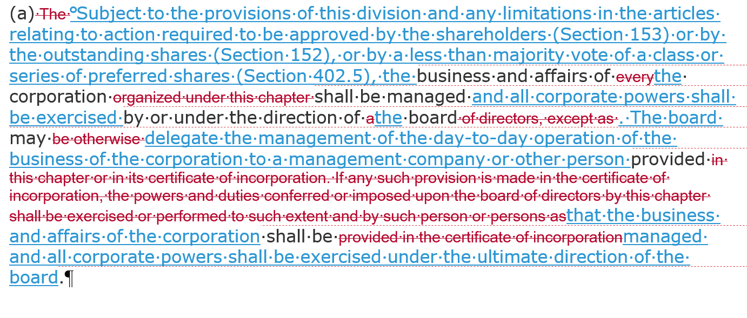Heheheheheheee Wipe oooout!
Professor Stephen Bainbridge recently commented on a decision by Vice Chancellor J. Travis Laster finding that Section 141(a) of the Delaware General Corporation Law trumps most of the provisions of a so-called "new wave" stockholder agreement. The Vice Chancellor explains these agreements as follows:
Corporate planners now regularly implement internal governance arrangements through stockholder agreements. The new wave of stockholder agreements does not involve stockholders contracting among themselves to address how they will exercise their stockholder-level rights. The new-wave agreements contain extensive veto rights and other restrictions on corporate action.
West Palm Beach Firefighters Pension Fund v. Moelis & Co., 2024 WL 747180, at *2 (Del. Ch. Feb. 23, 2024).
This set me to cogitating on whether a new-wave agreement would survive under the California General Corporation Law. Section 300, like its Delaware counterpart, provides that the business and affairs of a California corporation shall be managed by or under the direction of the board of directors.. However, there are significant differences between the two statutes, as demonstrated by the following comparison (the blue, red and black fonts denote California, Delaware and common provisions, respectively):

While both statutes contemplate that the articles/certificate of incorporation may provide exceptions to board governance, the California exception appears to be more narrow - referring only to limitations involving shareholder votes. The California statute also does not include the sentence in the Delaware statute that expressly contemplates the performance of board powers and duties by other persons.
Section 300(b) of the California Code does refer to shareholders' agreement, but it must be remembered that "shareholders' agreement" is defined in Section 186 as a written agreement among all of the shareholders of a close corporation, or if a close corporation has only one shareholder between the shareholder and the corporation.
[View source.]